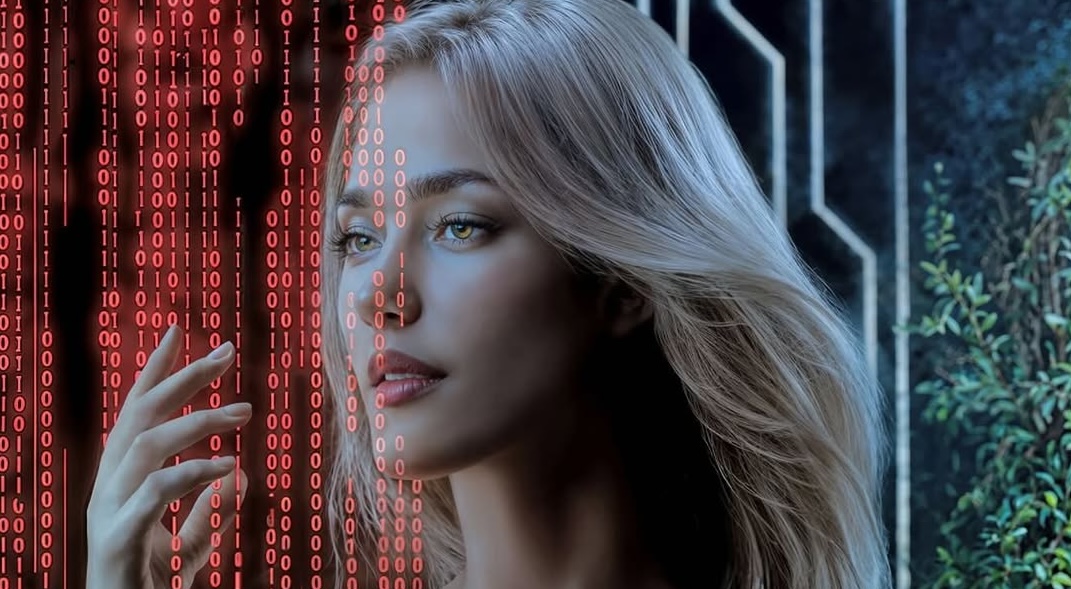Perhaps it’s supposed to be funny. Perhaps it’s supposed to be absurd. Perhaps it’s a fevered hallucination of what every Fringe show would look like if ChatGPT took control. Whatever it’s meant to be, AI: Save Our Souls is in fact a befuddling and incoherent mess.
The action starts with a solitary man, who spends what seems like minutes pounding a computer keyboard while muttering Tech Stuff. Projected behind him we see a copy of his screen, filled with window after window of Computer Stuff – though since the pointer’s waving frenetically all over the place and his hand’s nowhere near the mouse, you don’t need a grounding in software engineering to spot a certain lack of verisimilitude. In the background stands what’s actually a rather impressive piece of set, an illuminated box reminiscent of a data-centre server rack, which has Maths Stuff scrawled on its door.
Soon the coder is joined by a man who wears a clownish ruff collar, and speaks in an American accent so terrible I can only assume it’s meant to be that way. This man represents big business, and utters gems like “great ideas need great computational power”. There follows a cringe-inducing attempt at hip-hop, one of a handful of musical numbers drawn from varying styles – but unfortunately several of the singing voices were thin, and high notes were often an adventure. The cast also weren’t using microphones, meaning one of the songs was literally inaudible to me.
The AI somehow pings into literal existence, in female form and wearing a striking silvery jump-suit. “Where did she get this emergent ability?” asks the man with the ruff – a phrase normally used for things like ChatGPT writing haiku, rather than this unprecedented violation of all known laws of physics. The country’s President turns up and, for no obvious reason, is carried across the stage. A squeaky rubber duck is passed around the audience. There was one moment when the AI was hooked up to bright red cables, and I wasn’t sure whether she’d become all-powerful or died.
There’s clearly some intentional humour here, and it’s building towards a very well-observed point about the dangers of allowing AI to determine political dialogue, but the overall effect is perplexing. If it’s meant to be absurdist theatre – which would at least explain the clown ruff and rubber duck – then it would be wise to mention that in the programme. If it’s meant to be a serious warning about a dystopian near future, then the antics just get in the way. And if it’s meant to be a musical, then it honestly needs some catchier songs.
I have genuine respect, though, for the two black-clad dancers, who are powerful and hard-working and manage to retain their dignity, even when they’re being stood on or bizarrely required to crawl on and off the stage. The second star is for them – and for the costumes and set design, which between them do paint a convincing visual picture. Beyond that, I’m afraid, only a major rewrite will save this show.


Comments